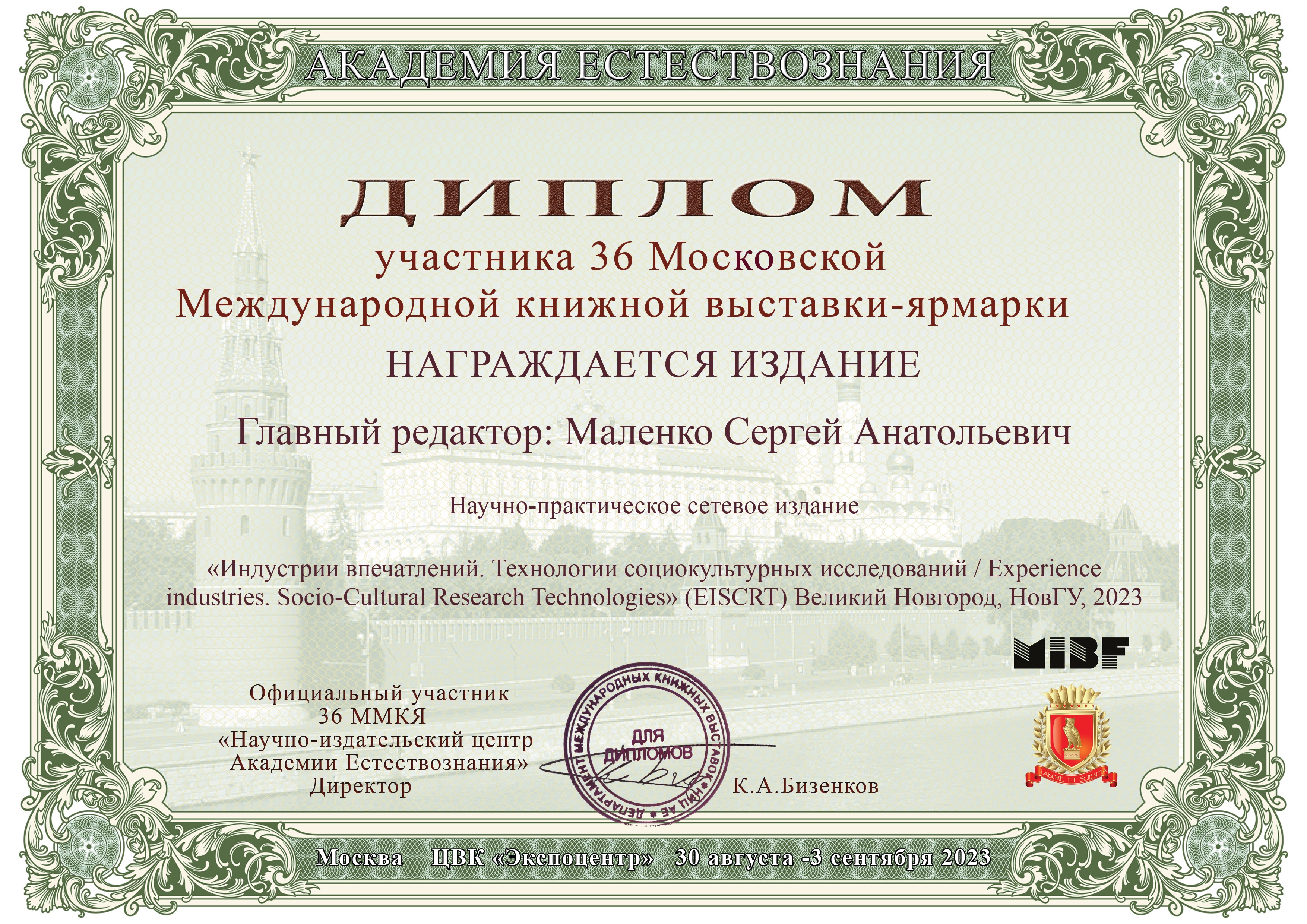EXPERIENCE ECONOMY IN PROFESSIONAL FOREIGN LANGUAGE EDUCATION: PHILOSOPHY, CULTURE AND LANGUAGE OF GASTROECONOMY
DOI:
https://doi.org/10.34680/EISCRT-2022-1(1)-154-178Keywords:
experience economy, experience marketing, consumer value of experience, gastroeconomics, gastronomic tourism, impression management, eating behavior modification, glutonic discourse, linguistic intellectual capital, semiotic mediumAbstract
The article is part of a pool of scientific research in the field of experience economy and gastroeconomics, focusing on transforming the soft power of gastrodiplomacy into a new driving force of economic development and valorizing its growth. In the context of the creative economy, an increase in the value of the experience comes to the fore, and experience marketing puts forward the client’s involvement in co-creating the experience as a consumer goal. Gastronomic tourism is seen as a theatricalization of economic relations, creating an economy of knowledge and an economy of participation experience in another culture. On this platform, the language of food (gluttonic discourse), which implements the glutonic picture of the world as a subject and object of research in multi-genre texts, allows linguists to explore culinary art as a means of understanding culture. The author conducts an aspect anthropocentric and ethnocentric analysis of the gastroeconomic discourse as a multi-level construct, revealing the etymology of gluttonyms that turn the names of dishes into a semiotic medium. The problems of correlating the linguistic and taste continuum are considered in line with modeling the linguistic gastronomic worldview. The study of the gastic language in nominating plots of economic history expands not only the linguistic, but also the intellectual horizons of modern economists. As one of the possible answers to the question of how well food is translated into different languages, the author finds a solution to translation problems in indirect descriptions and figurative constructions that demonstrate the productive results of the word-formation process.
For citation:
Vorontsova I. I. (2022). Experience economy in professional foreign language education: philosophy, culture and language of gastroeconomy. Experience industries. Socio-Cultural Research Technologies (EISCRT), 1 (1), 154-178. (In Russian). https://doi.org/10.34680/EISCRT-2022-1(1)-154-178








